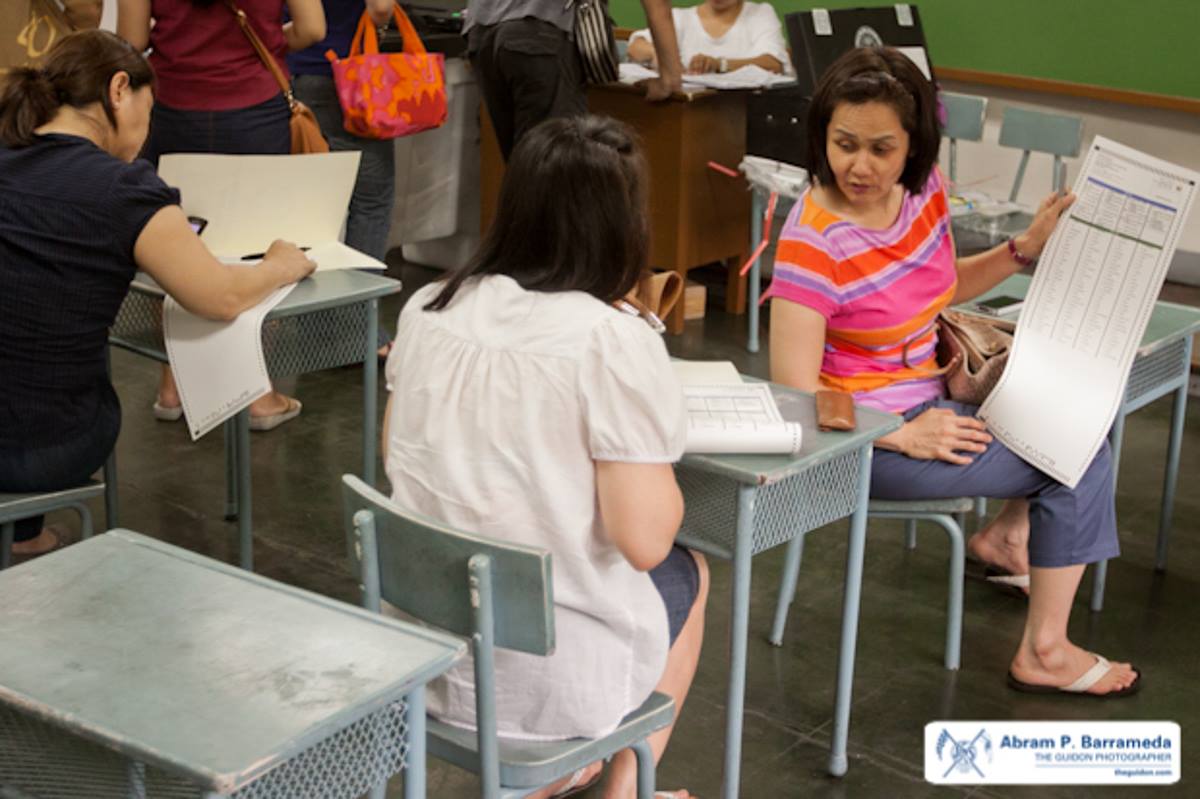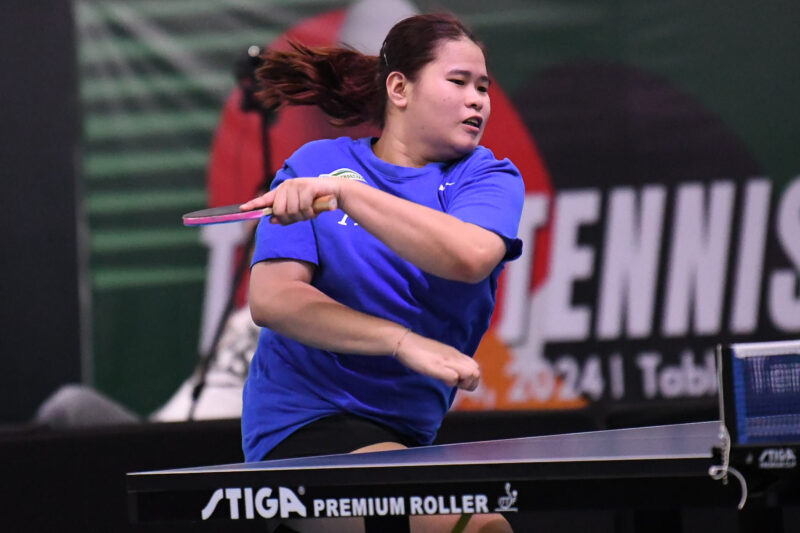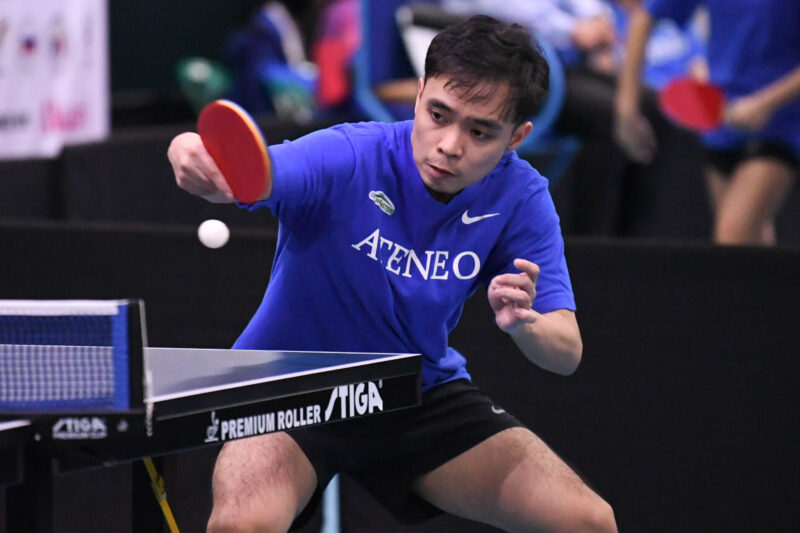THE 2016 national elections are drawing near and, in just a few months, Cathy* will be casting her vote for the very first time. Like Cathy, many Ateneans will be facing the same situation.
Although she beams with excitement for this newly acquired responsibility, she has apprehensions on the value of her vote considering that she is only one of 52 million registered voters.
“I must admit that there is a part of me [that] feels like a vote from me wouldn’t make much impact, and so I am motivated to actively take part to raise awareness on the importance of voting wisely to the people around me, in school or my circle,” the junior communication major explains.
Another one of the millions is Angel*, a junior European studies major who comes from Aklan. She claims that she was planning to register to vote, but conflicts in her schedule meant that she was unable to do so at all.
Like Cathy and many others, Angel doubts that her vote would make much of a difference. But research on the youth vote claims otherwise.
Quality over quantity
An Asian Institute of Management (AIM) Policy Center study reveals that based on the findings of the National Census of the Philippines, the youth comprise 40% of the country’s voting population. The youth is defined in the Philippines as those within 15-30 years old, according to Republic Act 8044 or the Youth in Nation-building Act of 1995.
The study went as far as to say, “even half of the collective votes of the Filipino youth would be more than enough to send an aspirant to the Senate, or indeed, to Malacañang Palace.”
But Political Science Instructor Arjan Aguirre contends, “To me, the importance of the youth vote does not [only] come from their quantity or their number. It comes from the quality also–the issues, the agenda that they bring in the table.”
Had she been able to register, Angel says that she would have voted for candidates who advocated for the passage of the Bangsamoro Basic Law, the refinement of the Reproductive Health Bill, and the ratification of lesbian, gay, bisexual, and transgender rights.
“We should never discount [youth voters] for their age, their lack of experience,” Aguirre explains. “For me, their lack of experience, their age, these are their assets. We need people to have this new understanding of things–a new gaze on issues.”
For Ateneo Task Force Head Mawe Duque, the challenge lies in bringing the different advocacies that the youth articulate into one single vision.
“The responsibility of Ateneo Task Force and [other] youth election bodies is to create opportunities for youth to converse with one another especially in creating a youth agenda,” he says. “There must be a common agreement to what really represents the youth.”
Duque recognizes that the youth are more than capable of raising issues and choosing candidates, but he does not neglect the fact that their families play a very important role in the formation of their votes.
Voting by blood
Angel says that their family talks about politics over evening television newscasts. She explains that these conversations impact her perception of candidates she had planned to campaign for.
“When I think about my parents, they’ve been voting for years and they know more political issues than me,” Angel admits, “so they can judge better than me who’s a good candidate or who’s not a good candidate.”
True enough, Duque says that this is a common scenario, especially with youth belonging to the lower socioeconomic classes. Through research for a marketing campaign competition he was participating in, Duque was able to trace the root of the phenomenon to the Filipino value of respect for parents.
“For example, sa barangay, sa probinsya, tatanungin ang itay kung sino ang pwede iboto. Sasabihin ng itay kung sino. And so, kung ano yung binoto ng family, yun din yung magiging boto ng youth (For example, in a barangay, in the provinces, one asks the father who they could vote for. The father will tell them who to vote for. And so, whoever the family votes for, that’s who the youth will vote for),” says Duque.
This is problematic for Duque because “there is no empowerment of the individual to decide for his own.”
Aguirre, however, contests that the family-voting phenomenon does not apply to the entire youth voter population.
“[Voting] is something that cannot be shared,” Aguirre points out.
He believes that perhaps Duque’s informants are first-time voters, “like the 18-year-old voters.” Although he agrees that family voting happens, he describes family voting as a one-time phenomenon. Aguirre explains that even if they recognize their parents’ views, they will find other sources of information.
Angel admits that her parents’ credibility and influence can only go so far. She explains that her parents do not instruct her explicitly on which color to support or which candidate to campaign for.
“It’s not like they tell me who to vote [for],” Angel says. “I think it has an impact how I think of that person. Pero they don’t tell me directly, like, you should vote for this person.”
She also explains that, if given a choice between political analysts and her professors versus her parents, she would choose the non-kin former.
Although a first-time voter, Cathy already refuses to surrender her vote to her kin. She claims that she is not affected by the electoral choices of her parents, crediting the accessibility of information online for the formation of her own views.
“My family’s criteria for voting are greatly influenced by media influencers like movie celebrities or celebrities they’ve watched in television,” Cathy explains. “They seldom go online to read news articles, so TV is their primary source of information.”
Having other sources of information besides her parents, Cathy is confident that even if it is her first time to vote, only her own discernment will be of concern. This is the “magic of voting” that Aguirre emphasizes.
According to him, most of the youth are anxious the first time that they vote, but they eventually appreciate the right to vote considering that it is a “personal thing.”
The unwritten rule
Because family-voting is not all-encompassing for the youth, Aguirre points the spotlight to a new problem: Political participation and youth activism.
For Cathy, it is in Facebook statuses and tweets where she generates and shares her thoughts. “The youth activism I am vouching for is through discourse and awareness in social media because the youth are very active in social media,” she says.
The Reuters Institute supports Cathy’s hunch. Their 2014 Digital News Report found that 58% of Facebook users, 29% of YouTube users, and 47% of Twitter users log in to acquire news. A University of Windsor study on social activism through social media also explained that social media, primarily Facebook, are conducive to activism because it allows for sharing of “photos accompanied by messages encouraging others to ‘get involved’ or ‘make a difference’.”
“I want the youth to decide for themselves what they want and not simply be influenced by a certain organization,” says Cathy.
However, activism, according to Duque, should not end in awareness in social media. He explains that there is a danger in falling prey to “slacktivism.” Even though gone are the days when street protests were the best avenues to call for change, Duque still emphasizes the importance of going out and “uniting the aspirations of the youth sector.”
“If social media fails to create a call to action, for me that’s not activism,” says Duque. “If it does not anger you to organize a movement from something or for something, it is not youth activism.”
He cites the welcoming of the 71 farmers from Kilusan para sa Ugnayan ng mga Samahang (KILUS) Magniniyog inside the Ateneo as a notable example of peaceful activism.
On November 20, 2014, the Ateneo community welcomed 71 coconut farmers from KILUS Magniniyog who marched all the way from Davao City. The farmers appealed to President Benigno Aquino III to sign an executive order which would create the Perpetual Coconut Farmers’ Trust Fund.
According to Duque, the event preserves a powerful message—one which he articulates as: “Hey, PNoy administration, this is major concern that you have to go through. You have to respond because this is your promise.”
Aguirre describes these messages of the youth as a manifestation of the youth’s clamor for “novelty and newness,” particularly for “new politics.” He cites the strong call of the youth to abolish traditional politics and political dynasties as key messages that the youth can be credited for. Correspondingly, a corruption-free track record is a non-negotiable for both Cathy and Angel.
However, Aguirre warns of careless political participation; he points to working with the older generations as the answer, instead of hurriedly replacing them.
Duque considers these “generational differences” one of the biggest problems when it comes to having a unified vision for the country. He points out that the youth has social media, while the older generations have the experience of “voting for decades.”
“I think the best thing to do now, especially with the youth, is to maintain this balance [of old and new],” Aguirre says.
Aguirre calls on the youth and the older generations to admit to themselves that they should learn from each other. He sees it as a mutual effort towards discourse.
“The balance itself, to me, is the unwritten rule that makes a society stable where politics is a virtuous practice and phenomenon,” Aguirre marvels.
He continues to say that this rule can only be enforced through the simplest yet most powerful thing that any individual, young or old, can take part in: Dialogue.
Cathy seldom talks with her parents when it comes to politics. Before she became familiar with social media, all of her sources were online news sites. She reasons that its accessibility makes it convenient for her to get as much information as she can. “In online platforms, everything is available and it could lead you to more links for further information and research,” Cathy says.
However, the path to discourse that Aguirre recommends is not a matter of choosing a medium, but going straight to unmediated conversation.
“They just have to talk,” he says. “Dialogue is the key. That is where politics—real politics—comes in. Where plurality flourishes and space exists. And of course, the freedom of each individual is respected.”
Editor’s note: Names have been changed to protect the interviewees’ identities.




